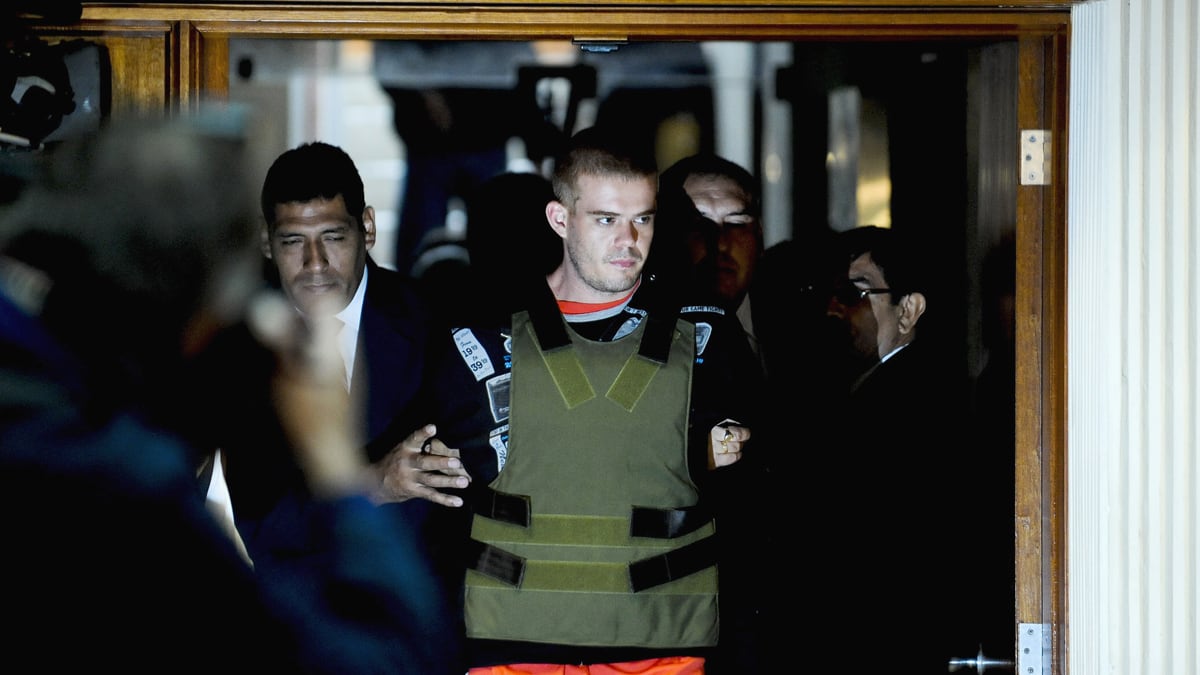Joran van der Sloot appeared before a Peruvian court to declare himself guilty today.
“I regret everything, I feel very badly,” the Dutch national said, before confirming that he declared himself guilty of all charges in front of Judge Victoria Teresa Montoya Peraldo.
The murder of 21-year-old Peruvian college student Stephany Flores in a Lima hotel occurred five years to the day after the disappearance of American teenager Natalee Holloway on the Caribbean island of Aruba—a cold case that has inspired a book, a movie of the week, and endless speculation about what happened on the night of May 30, 2005.
Though van der Sloot was never charged with the Holloway disappearance, he has remained the chief suspect in her presumed death. The Peruvian court allowed few words from Jose Jimenez, van der Sloot’s defense attorney, who argued, “My client was 22 years of age in May of 2010, and was persecuted by the world for five years for something that was never proved”—a reference to the Holloway disappearance.

Despite the massive amount of media coverage surrounding this case, only a handful of civilians showed up to rally outside Lima’s Castro Castro prison. They shouted “Murderer! Murderer! Murderer!” outside the main entrance, while holding yellow cardboard signs that read “Life in Prison” and “Justice for Stephany Flores.” “She’s a Peruvian, and we Peruvians must stand behind each other,” said 33-year-old computer technician Eric Neira.
The court had granted van der Sloot time to think about whether he would plead guilty and accept the charges of aggravated homicide and petty theft, which call for a 30-year sentence but may be minimized by what Peruvian law calls “a sincere confession.” Just over $74,000 is sought as a fine.
Van der Sloot was caught on surveillance cameras at a casino with Flores, who had won more than $10,000 at baccarat; he was later seen exiting the hotel where Flores’s body was found beaten. The three men who helped transport van der Sloot south to the Chilean border—a place he is suspected to have tried to flee to because of its anti-extradition laws—had been released on their own recognizances. They were present in the courtroom, and are being charged with obstruction of justice. If found guilty, they could face up to five years in prison and a fine of around $4,000 each.
Despite Peruvian laws that prohibit further argument once a plea is entered, attorney Jimenez pressed the judge, in hopes of a lighter sentence. “I wanted to refer to the posttraumatic stress [van der Sloot] was under at the moment of the crime,” Jimenez said. “My client regrets what happened very much.”
The Flores attorney dismissed van der Sloot’s admission of guilt at a press conference. “There is an acceptance here, but not a confession,” he said. He hinted that he would appeal the decision if the sentencing is too lenient.
The 24-year-old is scheduled to be sentenced on Friday.






